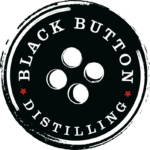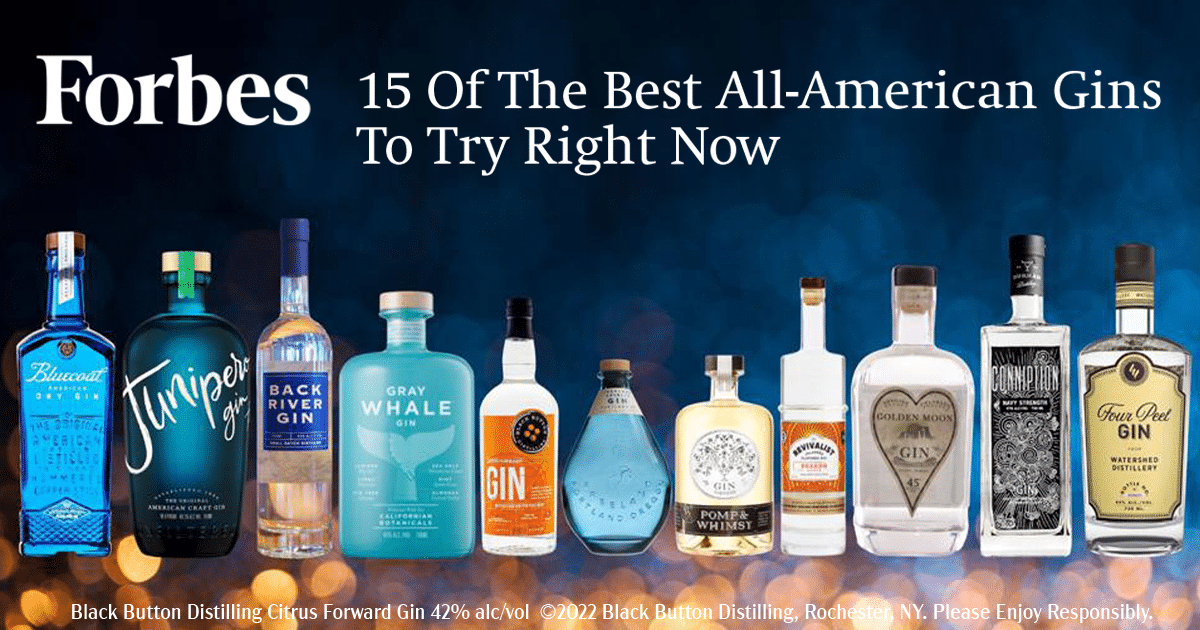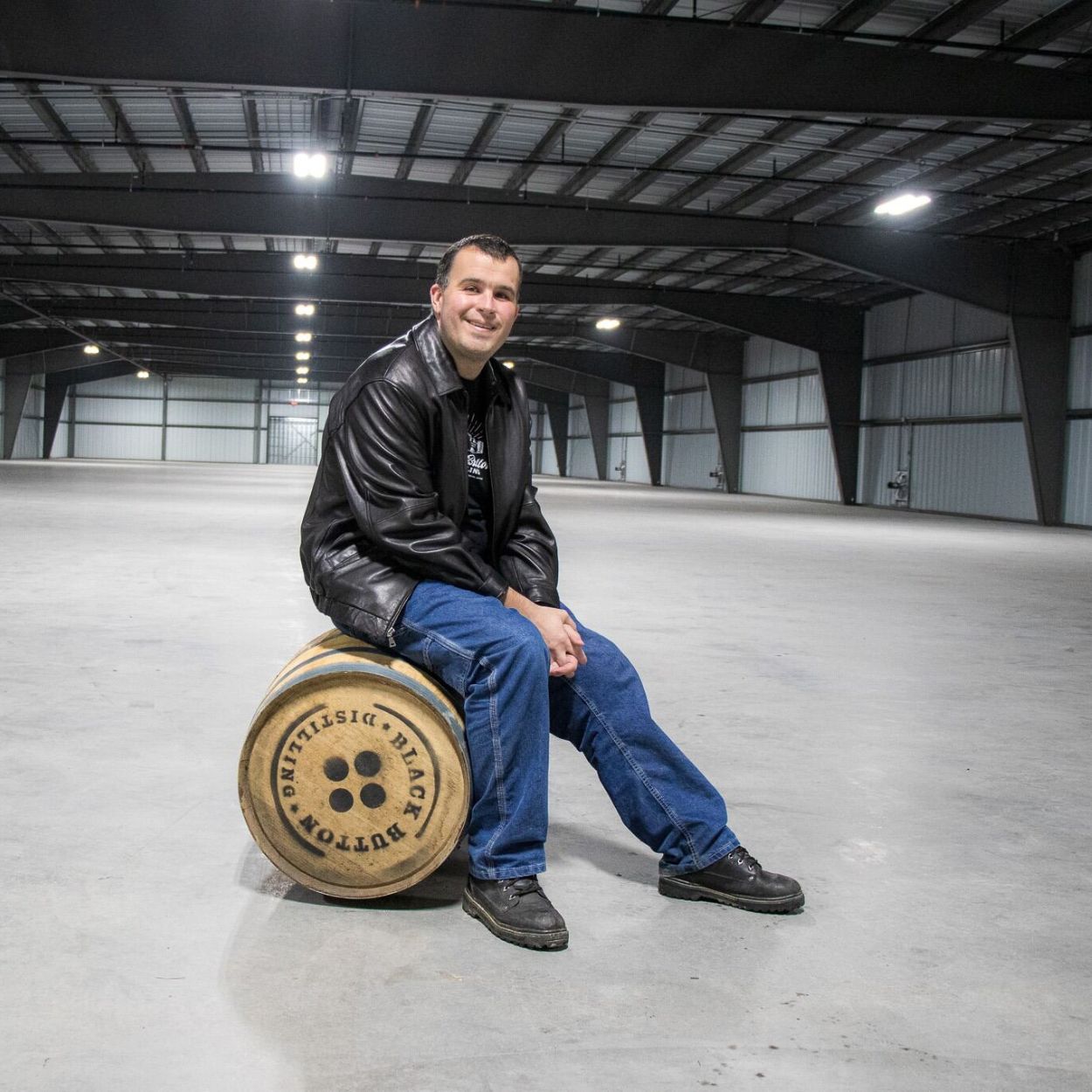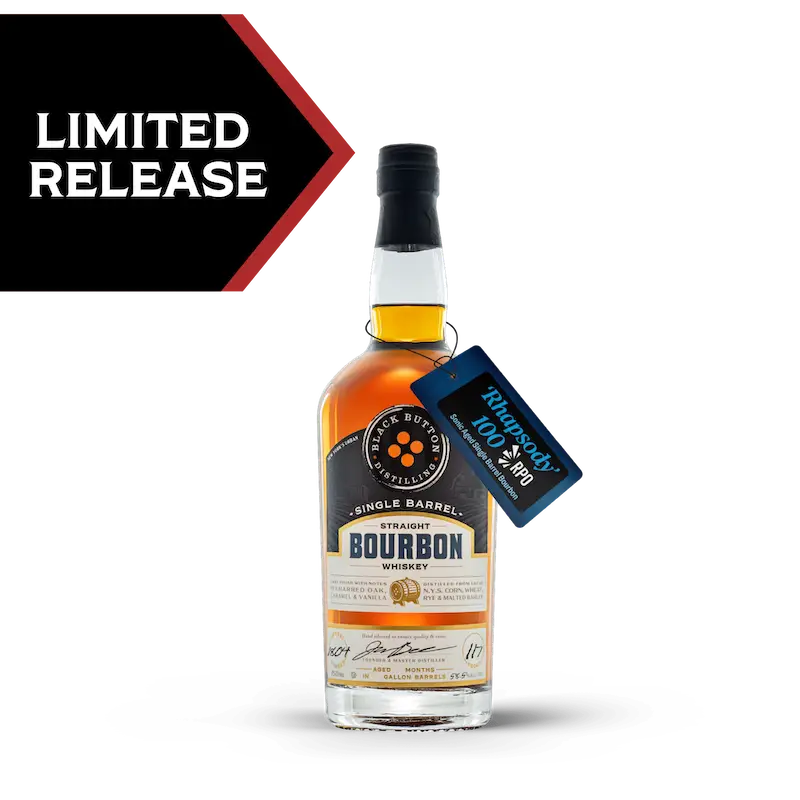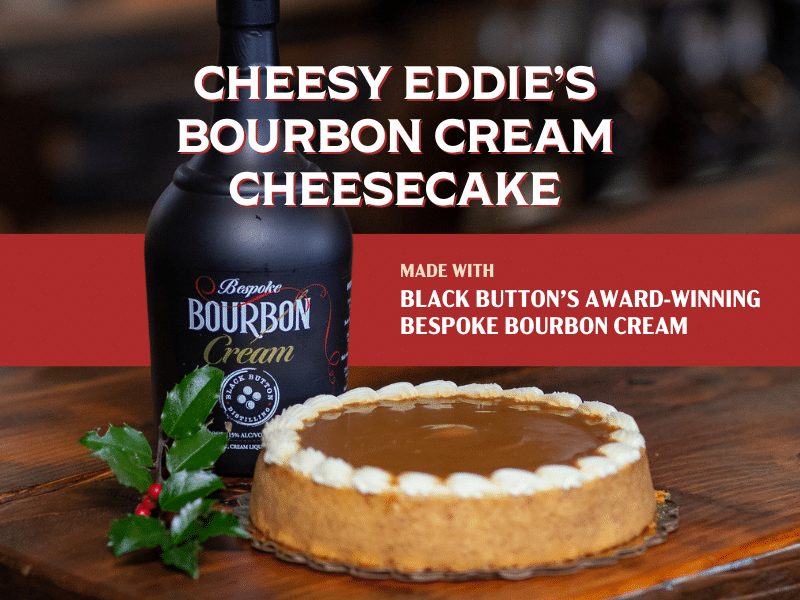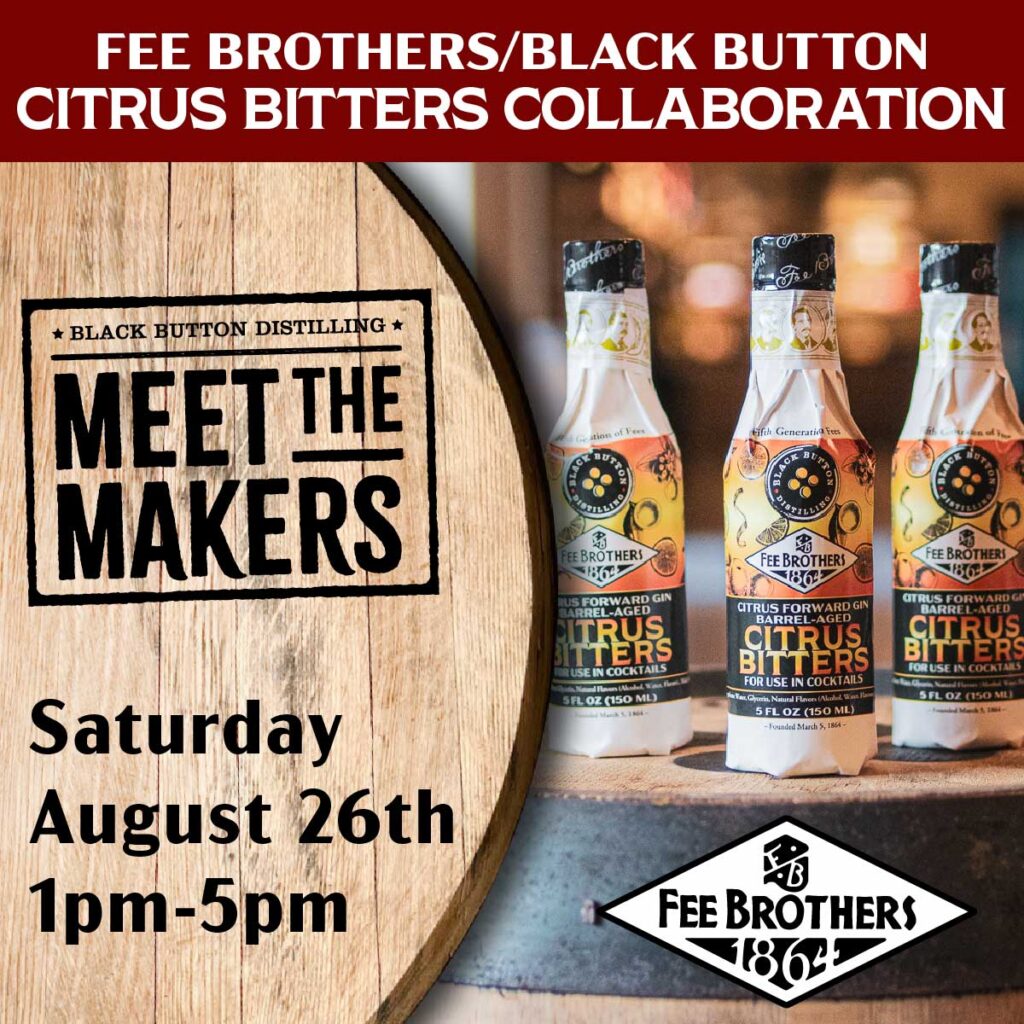Menu
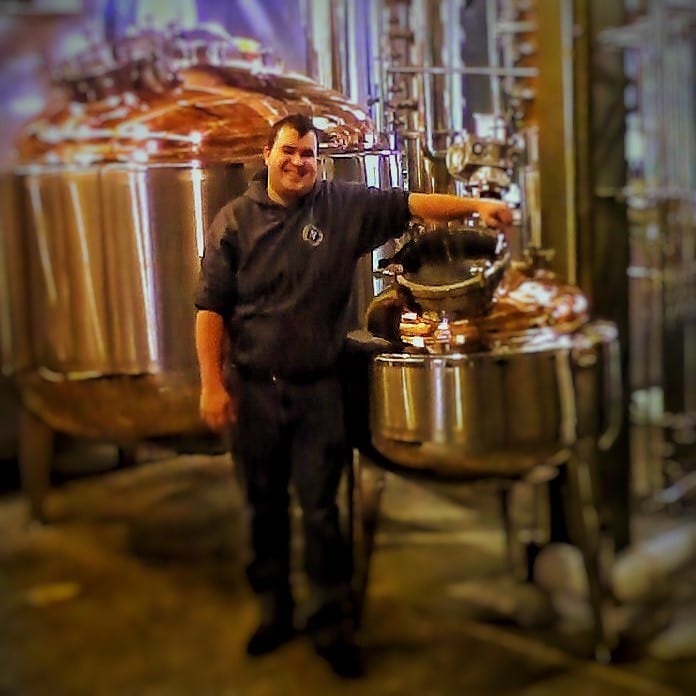
Fiercely Local Distillery Beginning To Hit Milestones.

Fiercely Local Distillery Beginning To Hit Milestones.
ROCHESTER BUSINESS JOURNAL
Written by Thomas Adams
September 27, 2013
THE EQUIPPED BREWER
by J.V. Bolkan
Peer Q&A: Black Button Distilling
Note to readers: This Q&A is part of a series of peer interviews from The Equipped Brewer. Monthly installments will share the key experiences, lessons learned, and advice of owners, operators, and other key contacts at young craft beverage companies as they’ve tackled the challenges of growth.
Black Button Distilling hasn’t been open for even two years, but being young isn’t a problem for this Rochester, New York craft distillery. Owner and distiller, Jason Barrett, began the business at the tender age of 24, but seems to have matured early, much like one of his cherished small-barrel bourbons. Black Button produces a citrus-flavored gin, a variety of white whiskeys (moonshine), and a soon-to-be-released bourbon. Ingredients are sourced exclusively from NY state. The distillery also features a tasting room/cocktail lounge.
You’re pretty young to have started and run your own distillery, were there any obstacles because of your age?
Jason Barrett: 24 is a little young to be doing all this but it doesn’t bother me. Everyone else seemed to think it was strange. It was actually a bit of an advantage, because I wasn’t settled, with a family that might have made me more risk adverse. Investing everything you have to make whiskey is a little crazy.
Why open a distillery and why was the time right?
JB: When is it not the right time to quit your corporate job to make whiskey for a living? But in all seriousness I had been home brewing beer for years and wanted to open a brewery. But as I looked around there were already so many breweries that I really felt I had missed that wave. Then a friend invited me to the ADI tradeshow and when I found that I could use the same skills to make bourbon, I was absolutely in love. I went full bore right then toward getting my distillery open. It took a couple of years but it was the passion in my veins to see it through to completion that propelled me to work harder and harder to make this dream a reality. The craft distilling movement was and still is so new and it’s just so exciting to be a part of this movement.
Your bio says your family business had been in buttons, where did you get the expertise to put a distillery together?
JB: I took distilling courses with Dry Fly Distillery, Koval, Michigan State, Cornell, as well as a few others. The wealth of knowledge and tricks of the trade from these other craft distillers were invaluable. It’s a very open and collaborative industry. Plus I read every book, blog, whitepaper, and magazine I could get my hands on. My family’s button factory has always had a significant impact on my life as I grew up working with my hands. Entrepreneurship has been in my family for generations and it made perfect sense to me to continue that tradition but I wanted to carve my own path and craft distilling was that path.
Which products did you start with? Obviously bourbon requires multi-year barrel aging, did you start that process early or did you build from the “white” spirits?
JB: When I opened Black Button I knew I wanted to focus on gin and bourbon. We started making and aging our bourbon in barrels a few months prior to our opening, hence why will have straight bourbon available prior to our two year anniversary. Our methodology for our white spirits and dark spirits has been the same — quality, craft spirits in small batches. Every drop of Black Button has always been and always will be made right here on Railroad Street in Rochester NY.
Local sourcing is a major theme on your website, but do you ever find that limiting in what you’d like to try next?
JB: New York is an agriculturally strong state. The lack of sugar cane and agave in New York prevents us from creating a Black Button Rum or Tequilla and that is okay, everything else we have wanted to make we have been able to source locally. There is a very large focus of farm to table here in New York state and our grain to glass distilling is our small part of that movement. I believe our variety of spirits and the creativity we continue to utilize in our production process using locally sourced products shows what New York agriculture can do. For the most part, we don’t have any suppliers more than an hour away. It allows us to meet them face-to-face. It allows us to walk through the corn fields with them, understand what’s going on with the rye fields, discover how the apple crops are doing. For instance, maybe weather affected the way they look this year and he’ll need to sell them all to juice this year. It’s finding ways we can work together and maybe we can use more apples. It’s about helping each other out. It’s very challenging, but rewarding and fulfilling—I can’t imagine doing it any other way.
We probably know these markets much better than some further away, but those aren’t the only reasons to focus regionally. We have 300 gallon hybrid pots, making about 1,800 bottles a week. That’s quite large for a craft distillery, but at the same time, tiny when compared to the larger craft distillers that have a national or international reach. We stretch those 1,800 bottles across 8 states, it doesn’t go very far. In fact, we’ll probably pull a double tonight to get another run in to try and catch up.
What has been the biggest challenge in getting the distillery running? The most surprising thing?
JB: To be honest, it’s not the hundreds of thousands of dollars of capital or the stringent government requirements that keep me up at night. The biggest challenge is finding the right staff to represent our brand. We struggled with this earlier but now I am very thankful and proud of the bartenders and full time staff we have. Black Button is not a one man band. It’s a family of dedicated, overworked, under-paid passionate people who have found their way to us and decided for their own reasons to join me on this journey of great discovery.
How does the craft spirits business differ from other craft beverage businesses?
JB: It’s so new. The craft beer scene has been flourishing in New York for years and wine has been here for decades but distilling is still so new. However, I find distilling to be much more of a patient, detailed process. The time and sweat that goes into aging a whiskey into a rich, refined bourbon to me is a thing of beauty. The look of satisfaction when a customer tries our bourbon means so much to me because its years and years of hard work and research coming together in that moment. Distilling is still charting a new course.
Most craft brewers, hard cider houses, and even wineries speak about the community of brewers/cider makers, etc. It is pretty common for them to feature each other’s products in their taprooms, share techniques, even host joint events. How do craft distillers fit into this picture?
JB: This industry has very much a rising tide effect, when one distillery wins we all win. The exposure of our industry creates an echo chamber and gets everyone talking about craft distilling. We have had other local craft distilleries in our tasting room and we work with them on various projects and events. This is not a small distillery versus small distillery industry, it’s us versus the big guys.
Liquor laws are generally much different for distilled spirits than for fermented beverages? How do you stay abreast of the regulations?
JB: Being extremely organized and well versed in the laws is absolutely crucial in the craft distilling industry. I also think it is important to take a stand and challenge some of the regulations (within the confines of the law of course.) Mostly we stay abreast by being a part of industry trade groups and forming relationships directly with regulators. Reaching out to TTB or NY SLA personally, directly, and asking for help is usually where we start when we don’t understand a regulation.
Spirits also differ from fermented beverages in how they are consumed, many people prefer their spirits in a cocktail. How do you deal with this in your tasting room?
JB: We encourage all consumers to try our spirits as they are. We want everyone to notice the little nuances and differences in our spirits that the mass produced spirits may not have. We do have mixers for our spirits such as tonic with our gin or ginger beer with our unaged corn whiskey. We understand some consumers may not enjoy vodka straight and we are more than happy to recommend what we believe blends best with each spirit. Plus NY lets us serve cocktails now so for some folks we just serve them a cocktail.
How are your spirits distributed? Are your sales mostly direct, through local outlets (liquor stores, bars), or through distributors?
JB: We have a sales team that covers the liquor stores from Buffalo to Syracuse. We have distributors throughout New York state delivering our spirits to the restaurants and bars we think are the best fit. Our sales are primarily through our distributors delivering to the cocktail bars throughout New York state. Our spirits can also be found in New Hampshire, Michigan, and Pennsylvania. We will also be entering the market in New Jersey, Georgia, and Virginia in the next few months.
Limited run, specialty beverages are a mainstay of craft beer and cider makers, will you (or do you) plan to release specialty spirits?
JB: This past spring we released our very own Lilac Gin, a spirit paying homage to the Lilac Festival, one of Rochester’s claims to fame. This gin was a limited batch and we were able to sell out of it in about a month. We plan on continuing to release this spirit as a limited small batch gin. Releasing new spirits is not a simple task but it has a great deal of personal satisfaction so we will continue to bring them to market whenever we can.
How difficult was it to gain the capital to open the distillery?
JB: Well, it is never easy, but banks are willing to lend on hard assets such as the equipment and other things that can be sold if you can’t repay your loans. We borrowed for the hard assets, but I used my savings for the inventory, the build-out, and all the marketing. As you get older and build distribution, inventory, and a record, things with the banks begin to open up, but it is still tough. Lots of people are forced to bring in equity partners. Black Button is 100% family owned, I own 91% myself and we intend to keep it that way. It allows us to run the business we want, which doesn’t always mean the most profitable.
For instance, we spent $30,000 for silos and automated grain handling equipment. It will be years before they pay for themselves, but it was a huge quality-of-life perspective for my distillers and making sure they don’t get hurt. It was definitely the right decision for the company.
What is the next step for Black Button?
JB: The next few weeks are very exciting at Black Button Distilling. We will be releasing our newest product in August (It’s the only craft bourbon cream on the east coast) and our big barrel-aged four-grain bourbon will be ready in October. We are constantly exploring new avenues and thinking outside the box in terms of what would please our consumers. We are very grateful for our supporters, we would not be where we are today without them!
We can do about 5,000 cases a year from this facility and we’ll probably hit that in 2017 and that will probably be it. I don’t want to run a 200 person company. I think at 5,000 cases, I’ll have everything I want, we’ll be able to make lots of bourbon, my true love. We don’t have some exit plan to maximize growth and sell it to Bacardi. We’ll just get as big as we’re comfortable with and what fits in our space.

